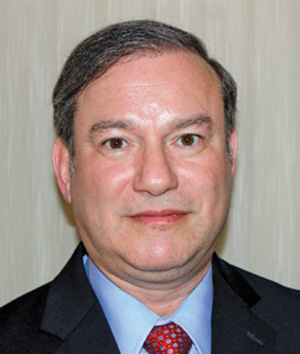
Hurricane season is here. We recently experienced the devastation of Hurricane Dorian in the Bahamas a short while ago. Residents from Florida to North Carolina were making preparations to deal with the water, wind and fury that the hurricane was expected to bear down upon them. What is worse is the loss of electricity that is sure to follow for days and possibly weeks afterward when a hurricane makes landfall.
When Hurricane Wilma struck South Florida in 2005, my late parents, z”l, were without power for 10 days. There was no air conditioning, no cooking was possible, the water could not be boiled, gasoline for cars could not be pumped and the supermarkets were closed. Roads were blocked with fallen trees and debris. Calling 911 could not guarantee rescue. Folks were mostly on their own. Is that the meaning in Parshat Ki Savo’s curse when it speaks about the “rain descending from the Heaven until you are destroyed?” (28:24)
Rabbi Berel Wein noted that hurricane season typically takes place during the Jewish month of Elul, the month of introspection and preparation for the High Holy Days and the Days of Judgment. He noted that “a hurricane is a pretty impressive and awesome mussar shmues” all by itself. No human being’s words of wisdom can improve upon it. If one is not sufficiently humbled by the power of a hurricane’s winds, rains and tides, then the most inspiring of speeches will also avail nothing in conquering the unwarranted arrogance and haughtiness that infects many people.” Witnessing the power of a hurricane also reminds us of the moving U’nesaneh Tokef prayer we recite on Rosh Hashanah, when we ask “who will live and who will die” and by what means might their lives be taken.
The only reference to hurricanes in the Talmud is found in Brachot (59a). The Gemara tries to ascertain if there is a deeper meaning to the rain, the thunder and the devastation that takes place. Again R’ Wein asks, “Why does God employ natural disasters to inform us of the importance of humility? Why does He allow for such great human suffering for so many seemingly blameless people? I certainly do not know how to answer or even deal with these troubling questions. Man cannot understand or fathom God’s methods for dealing with this world. However, because we cannot satisfactorily explain something does not allow us to ignore its obvious lessons.”
As people, we try to live predictable, well-ordered lives. We try to control for all factors. At times, we even come to arrogantly believe that we are the complete masters of our own fate. However, the weather continues to show us that this is not necessarily so. The weather is the most unpredictable element of our lives. Devastating weather proves this even more so. It reminds us of nature’s might and fury. There are beautiful multi-million dollar homes along the coast lines that may flood in a hurricane when the tall surges of sea water overwhelm them. It brings to mind the verse from Tehillim (Psalm127:1) that if God does not assist, those who build a house do so in vain.
During this introspective month of Elul we are reminded of the forces of nature that we cannot command. We are also reminded of the fact that we are not in complete control of our lives and that we need to return in “teshuva” to Hashem and ask for guidance and assistance. Our hearts, hopes and prayers are with those who may be impacted by the hurricanes that unfortunately take place during this time of year. May we all be blessed with a ketiva and chatima tova.”
By Rabbi Dr. Avi Kuperberg
Rabbi Dr. Avi Kuperberg is a forensic, clinical psychologist in private practice. He is president of the Chai Riders Motorcycle Club of NY/NJ. He leads the Summit Avenue Shabbos Gemara shiur and minyan in Fair Lawn, NJ, and is a member of the International Rabbinical Society. He can be reached at [email protected].










